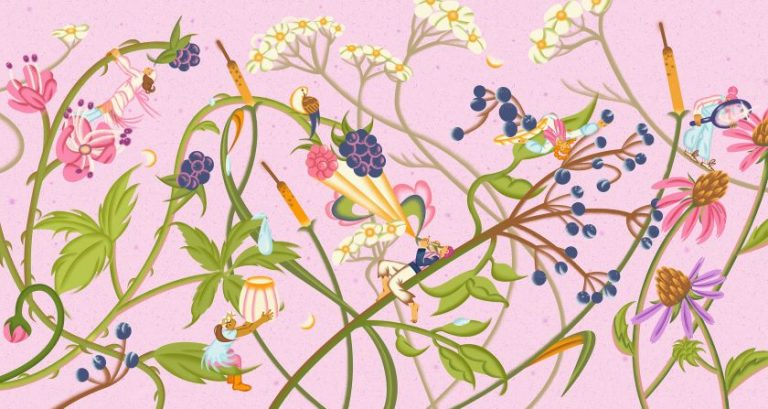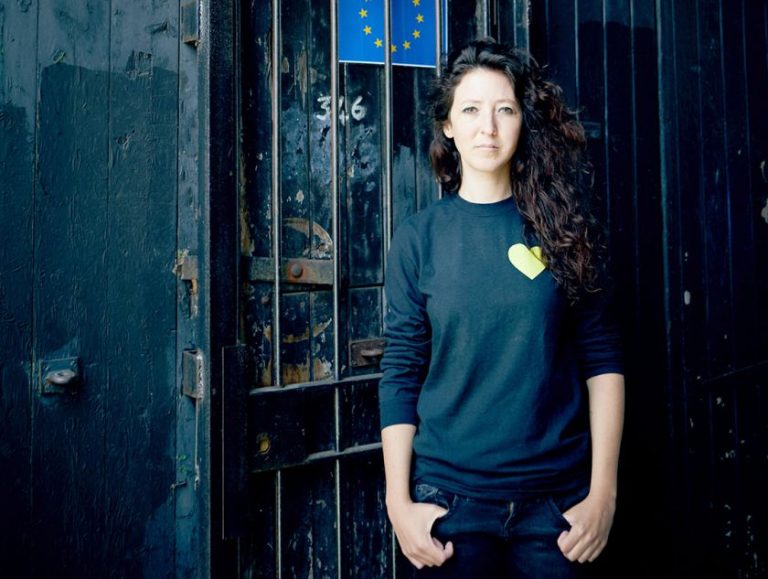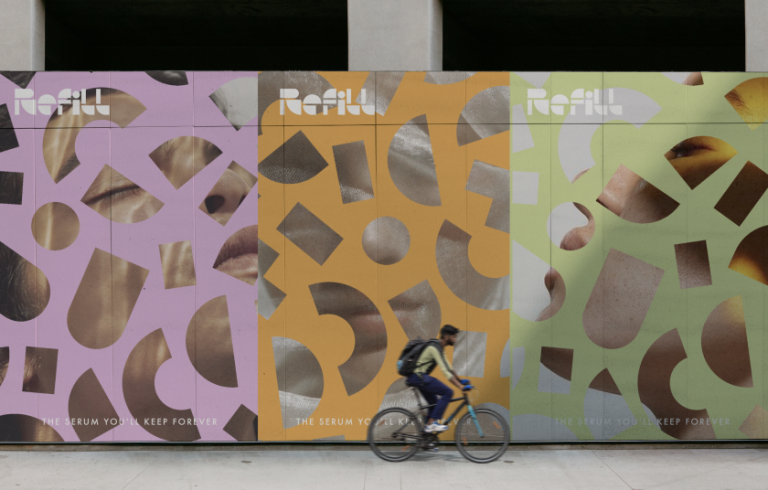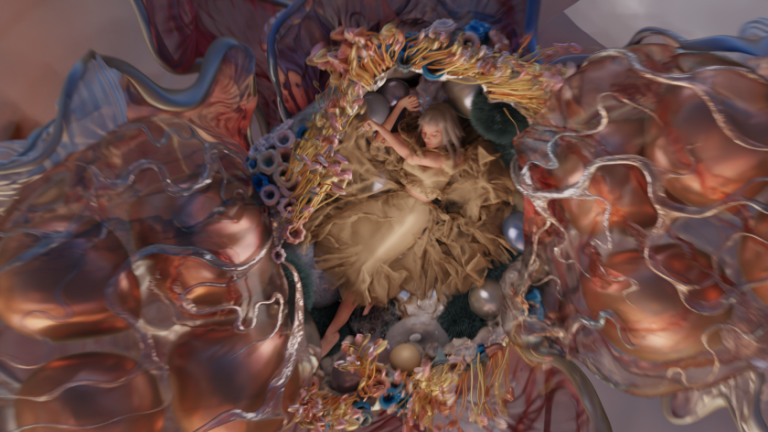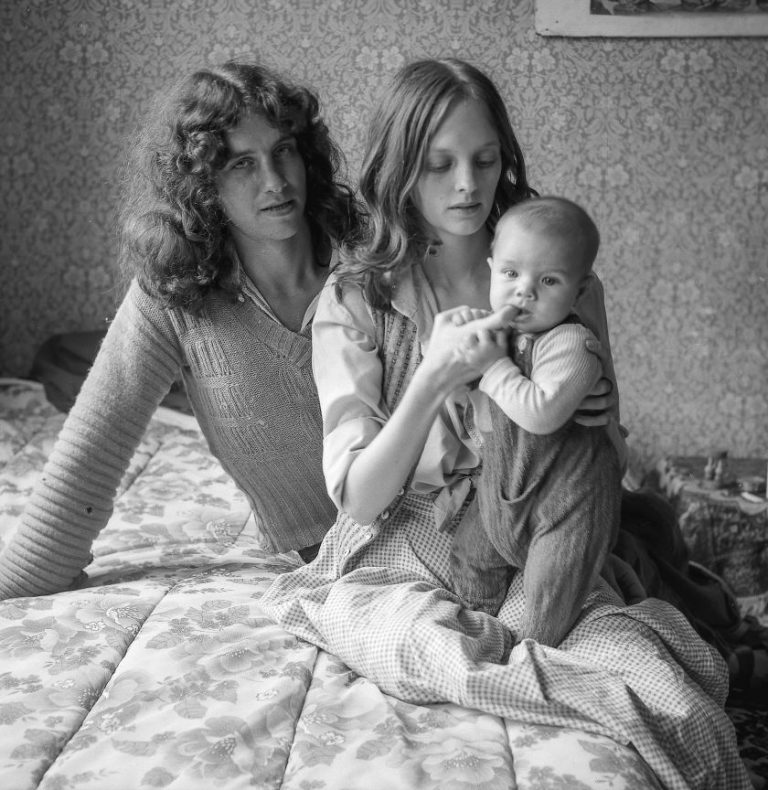London-based creative Zhanjiang Liu switched to illustration after ten years of working in the design industry. Despite being a relatively new illustrator, his drawings explode off the page with a chaotic intensity as they capture the highs and lows of everyday life.
Having previously worked as an art director for commercials at advertising agencies, Zhanjiang Liu felt it was time for something new. The competitive and anxiety-inducing nature of the industry had left him feeling stuck in a loop, so he decided to move to London and embark on a fresh start as an illustrator.
Now, as an MA graduate from the Kingston School of Art, he is just starting to explore his newfound career as an illustrator. “It has always been my dream to work as an illustrator,” he tells Creative Boom. “However, I didn’t find the best opportunity until I decided to embark on a new path.”
Describing his drawings as a way to communicate and let his emotions take shape on the page, Zhanjiang takes his inspiration from various creative influences. “One is Grayson Perry, one of Britain’s most celebrated contemporary artists, known for his eclectic and provocative artworks that explore themes of identity, gender, class, and societal norms,” he reveals.
“His British landscape-themed tapestries have a strong sense of marginalisation and desolation, which weave together the internal conflicts of a clearly hierarchical society. The reason that I enjoy his works is because, when we look at them closely, we can see a very illustrative style adorned with colourful and intricate designs that blend traditional craftsmanship with contemporary subject matter.”
Another creative Zhanjiang greatly admires is the fashion photographer Tim Walker. “His strong theatrical style brings a warm classical atmosphere to the fashion industry,” he explains. “His signature style often transports viewers into dreamlike worlds filled with nostalgia.
“Whether it’s dark emotions or sweet dreams, he interprets ‘beauty’ through the flow of light and shadow. In his works, artistic expression is not just a mirror reflecting ‘fashion,’ but it solidifies many unusual moments through dramatic storytelling.”
However, at the heart of Zhanjiang’s creative approach is a constant effort to reflect on the world and understand it. He says he desperately tries to turn everyday moments into illustrations with just a few simple makes and shapes. The less computer work involved, the better.
“If I’m lucky, they’re the right strokes in the right places, but in a lot of cases, I’ve completely screwed up a drawing,” he laughs. “This chaos translates into images full of energy and movement. I find satisfaction in the accessibility of the work I do. Its flaws provide a bit of humour and beauty.”
While this style might have a larger-than-life energy, Zhanjiang often depicts grounded scenes, such as events often found in daily life. He says that drawing everyday scenes serves as a form of observational practice for him and lets his work resonate with himself and his viewers personally.
“It’s a way of capturing fleeting moments,” he adds. “These drawings function as snapshots of life through narratives, emotions, and subjects related to the human experience. As an immigrant who lives in London, I often feel like an outsider, so seeing that in a picture helps me make peace with it. Also, depicting daily life provides insights into different ways of life. It helps me explore different cultures and societies.”
As for why he deliberately chooses to shun electronic tools when making illustrations, Zhanjiang says this is a deliberate reaction to his former life as a designer, where devices soon became part of his daily routine. “I basically drew everything without using my bare hands, paper, or other materials,” he reveals. “That physical loss was huge for me, so when I moved to the UK, I set a limit on how often I used electronic devices to create my illustrations.
“Over time, I came to enjoy embracing the unpredictability of traditional tools, so my go-to medium became the simple but expressive pencil and ink. They allow me to convey a wide range of emotions and moods through line work, shading, and texture. Additionally, I use very few colours, as I used too many to get my job done while I was a designer producing commercial illustrations.”
Zhanjiang doesn’t regret his time as a designer, though. In fact, he is keen to point out that it ultimately proved to be a very valuable experience. “It not only provided financial support but also laid the groundwork for me as an illustrator by building a client base,” he says.
“The reason for choosing to study illustration is not complicated; after years of design experience, I simply feel that many principles, especially in commercial design, cannot be broken. Illustration allows for the infusion of more personal emotions and expressions. In the meantime, it balances commerce and art. As I grow older, I feel I need such an opportunity to explore myself.”
But the path to where Zhanjiang finds himself today has not been easy. Developing his own visual style required a significant amount of time and determination. But it’s all been worth it. “What gives me the most satisfaction is the simple fact that I have come this far and will keep going,” he adds. “After all, consistency and persistence are stepping stones to success.”
He concludes: “I love illustration as a vehicle for addressing difficult subjects beyond the realm of truth and imagination. It has the power to evoke emotions and resonate with viewers on a personal level. It also can be applied to various mediums and industries. This versatility allows me to explore different fields and collaborate with diverse clients.”


